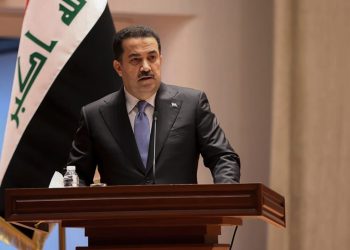Latest reports by Saudi officials show that foreign investments in the kingdom have declined quite sharply, reaching to the lowest levels since 2021.
According to a report by Saudi authorities, foreign investment in the oil-rich Kingdom has reached its lowest level since 2021. The Ministry of Investment of Saudi Arabi said in this regard that finalized foreign investment contracts decreased by 40% compared to last year and only 64 investment contracts were completely concluded in the first three months of the year 2024.
With the sharp decrease in foreign investment, the pressure on Saudi Arabia’s $940 billion public investment fund to achieve the goal of diversifying the country’s oil-dependent economy is also expected to increase.
To counter the challenge, Riyadh has been forced to reduce the cost of bold projects such as the NEOM city with an amount of 500 billion dollars investment. One of the Saudi smart cities in this project called ‘The Line’, which was supposed to have an area of 170 square kilometers and was initially planned to accommodate more than one and a half million people by 2030 is now nothing but a wild dream. Due to the decrease in foreign investments, the Saudi authorities have been forced to reduce the construction costs of this city by more than 95%, and now it is predicted that by that date, less than 300,000 people will live in a less than 2.4 km space.
Western bankers and executives have flocked to the kingdom in the hopes of tapping its Sovereign Wealth Fund for financing and raking in fees from deals, but Saudi Arabia needs foreign companies to invest inside the kingdom.
Global investors have proven reluctant to power Saudi Arabia’s economic transformation, leaving most of the heavy lifting to its Public Investment Fund, chaired by Crown Prince Mohammed bin Salman. According to the Saudi Investment Ministry, the US and UK were the leading investors in the kingdom, with the UAE, Egypt and Singapore following.
Saudi Arabia is now seeing what’s real!
Under the rule of Crown Prince Mohammed bin Salman, Saudi Arabia announced at the beginning of last year that it wants to attract 100 billion dollars of foreign direct investment annually by 2030, but this declining trend of investments has greatly surprised and worried the Saudi government.
This is probably why the country’s state-owned oil company, Aramco, recently announced that it would sell $12 billion of its shares in an effort to generate more financial resources for Saudi Arabia’s economic diversification project known as Vision 2030.
Aramco’s share sale comes at a time when oil prices remain depressed mainly due to concerns about weak global demand. Brent crude for July delivery was quoted at $77.50 per barrel in Tuesday’s intraday session, a level they last sunk to in early February. The oil price selloff is a serious blow to Saudi Arabia considering that the IMF estimates that Riyadh requires an average oil price of $96.20 a barrel to balance its budget, assuming it holds crude output steady near 9.3 million barrels a day this year.
The shares of this company were bought by American and British private companies immediately after the opening, which means the ownership of this big company no longer belongs exclusively to Saudi Arabia.







